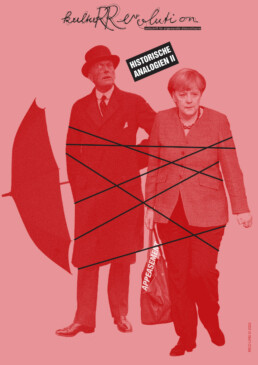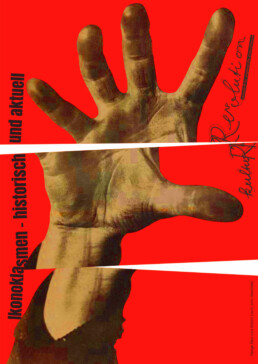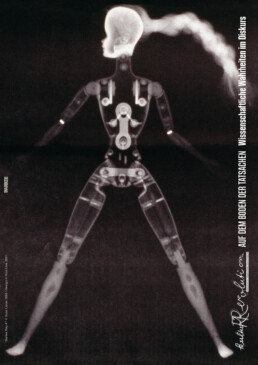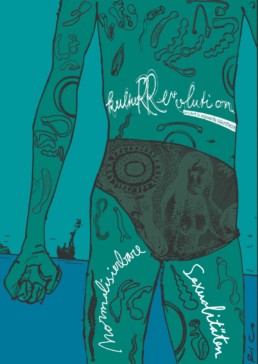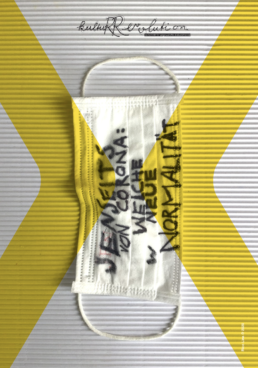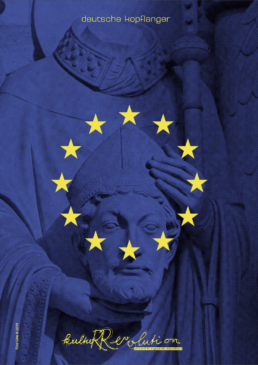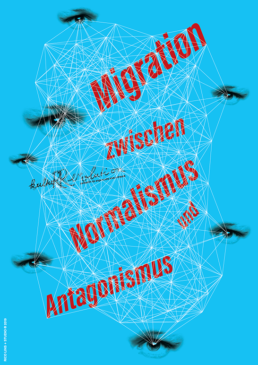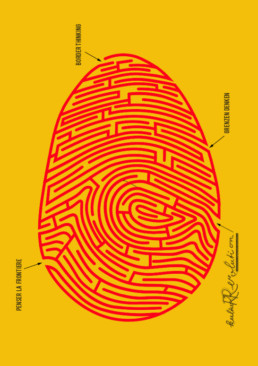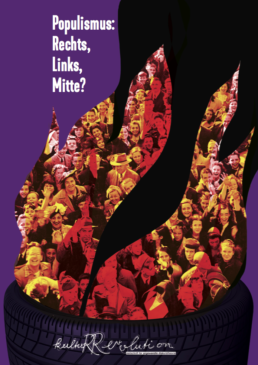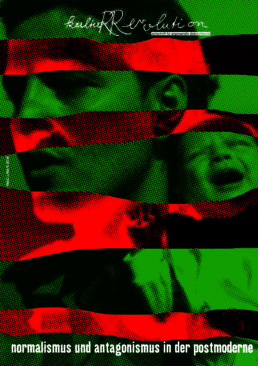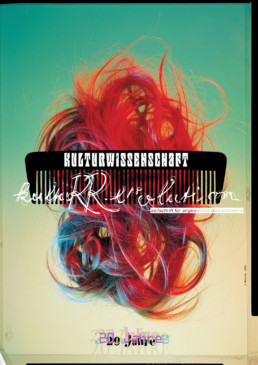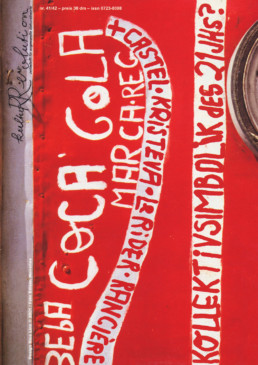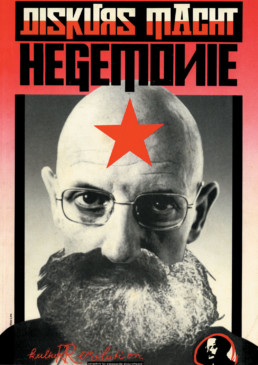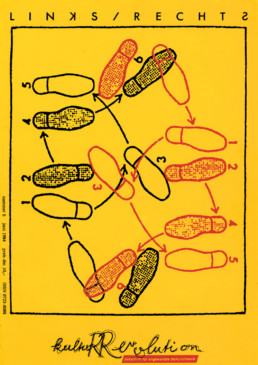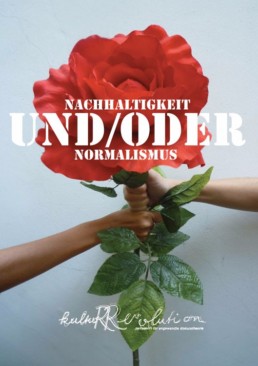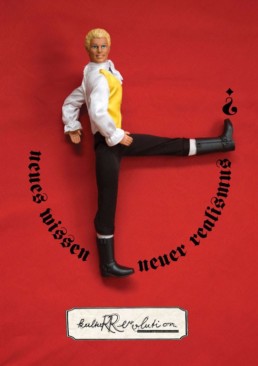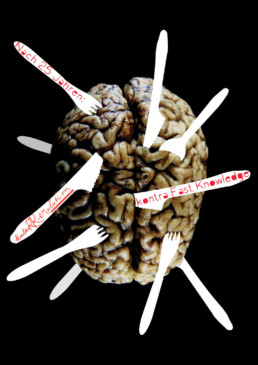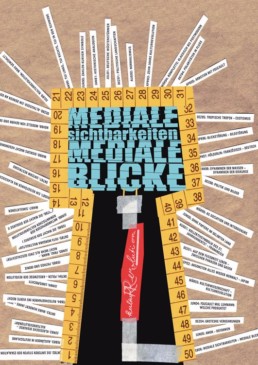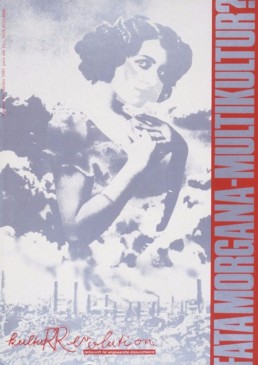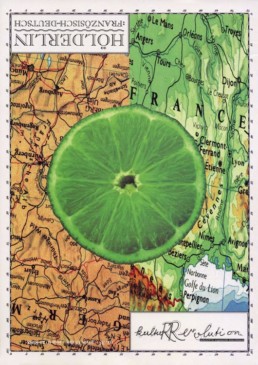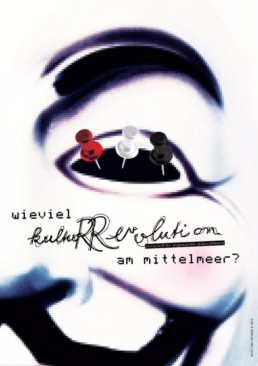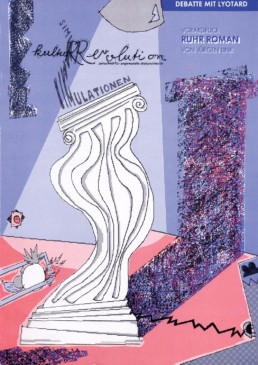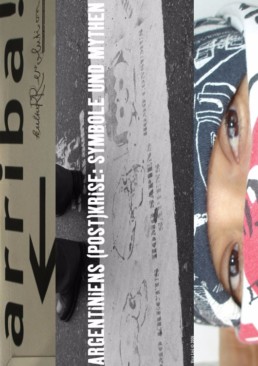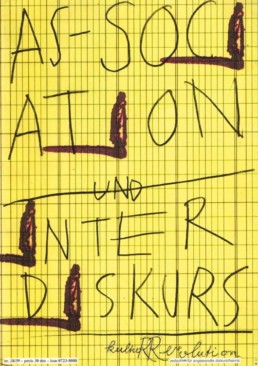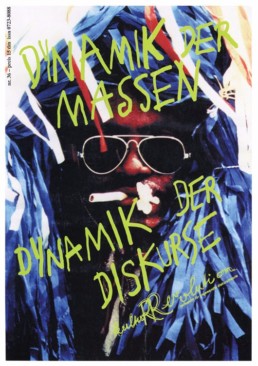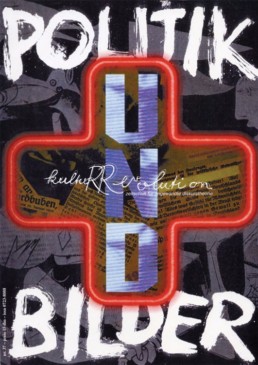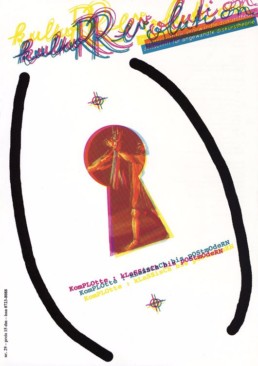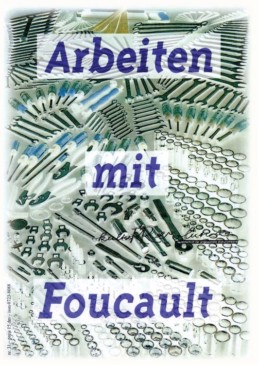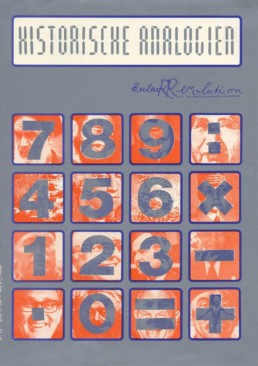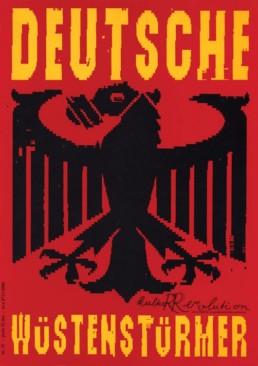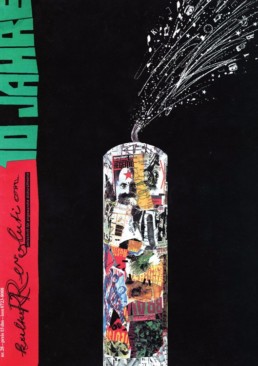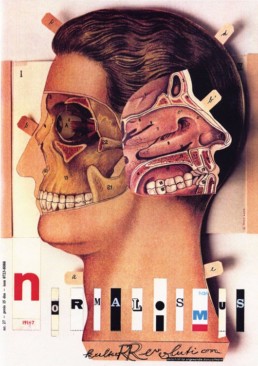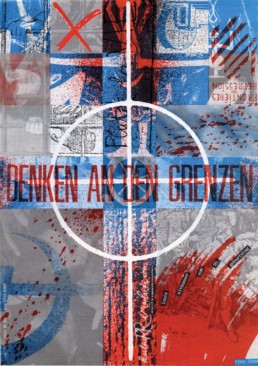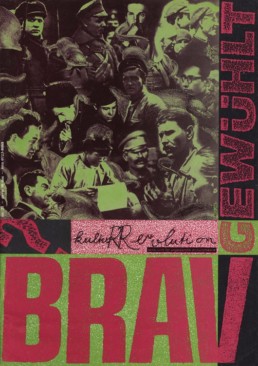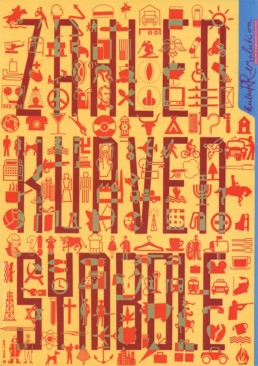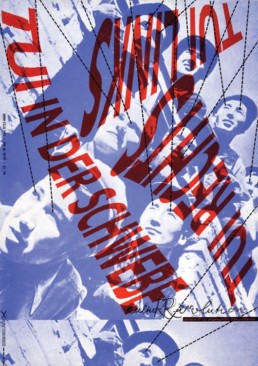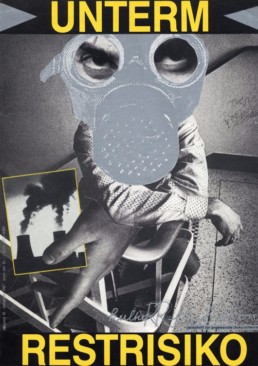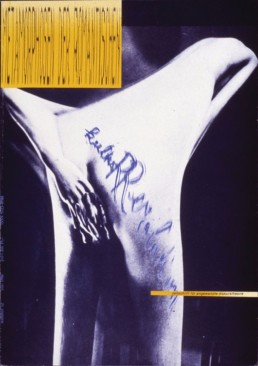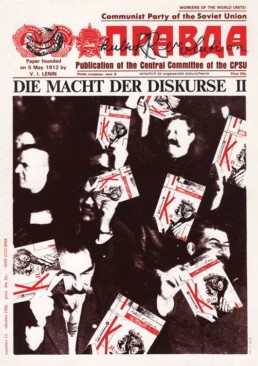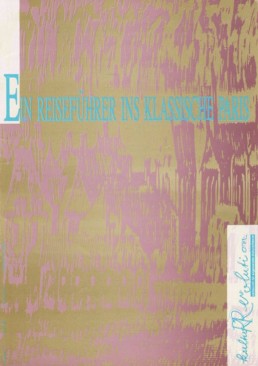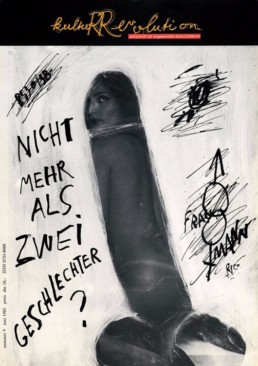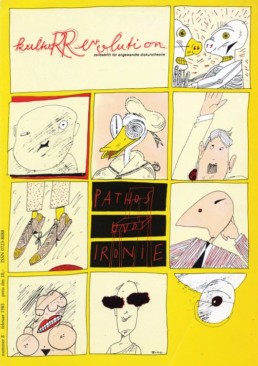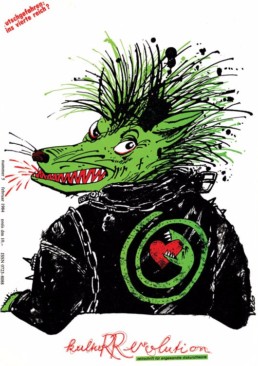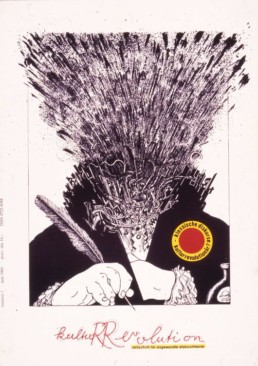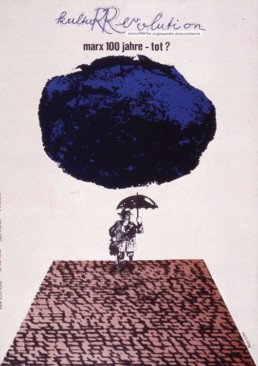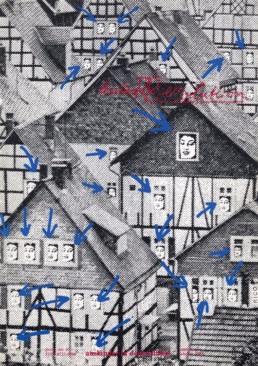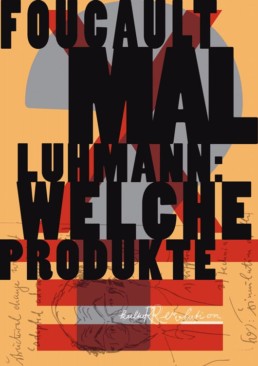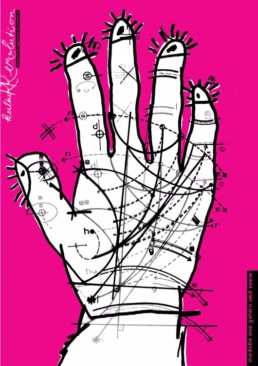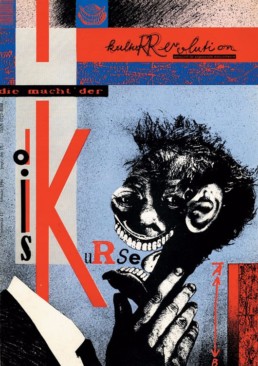KulturRevolution
Rico Lins has collaborated with KulturRevolution magazine since its founding in 1982. Dedicated to discourse theory, this academic publication – created and edited by professors at the University of Bochum in Germany – proposed an attitude that is editorially and graphically consistent with the content.
Opting for this analogical process required much graphic experimentation in order to simulate and explain the color separations to the printer, with the superimposition and dovetailing of three layers, each with visual elements and specifications corresponding to the printing of each color. The success of the end result of these covers which, before printing, look like a totally fragmented analog project, depended not only on the designer’s effort to predict the sum total of the colors, but on the printing firm’s comprehension of all the technical indications. This kind of orchestration always runs the risk of the unexpected.
Client
Klartext-Verlag Bochum Hattingen
Created in
Paris, São Paulo, London, New York, 1982-2024
Category
Cover + Identity
“Anticipating an emergency regime” is the cover theme of KulturRevolution’s 86th issue. The emergency regime established during the pandemic is linked to the alarming threat of war and militarism resulting from the conflict in Ukraine. The support given by the German neo-liberal press to the Emergency Law introduced in Argentina evokes the image of the chainsaw, an icon of Javier Milei’s campaign that inspired the magazine’s cover with the edition’s title stamped on its blades.
“Historical analogies” is the title of issue #24 of the magazine and the theme is revisited and updated in this issue #85. In this new version, the focus is on more recent events and the figure of the English statesman Neville Chamberlain and the “Appeasement”, his 1932 conciliation policy, echoes with the stance of the German Angela Merkel in 2022. The umbrella, an icon then adopted by Chamberlain is the link between these two moments and personalities.
The issue #84 addresses “Iconoclasm” from a current perspective, going beyond historical religious references. After all, from a graphic point of view, the theme triggered a revolution in visual languages from the artistic avant-gardes of the early 20th century with Dadaism, Surrealism and Russian Constructivism until today.
The explicit reference to the powerful graphic icon created in 1928 by the German artist John Heartfield for the cover of the political newspaper Die Rote Fahne establishes not only a visual link between two distinct moments in the German left-wing press but, with the ambiguous gesture of two dry cuts on the original image—one from right to left and the other from left to right—alludes to today’s radical international polarization.
“The Reversal of an Era” was the theme of KulturRevolution nº 83, which celebrated its 40 years of existence with a double dose. Having as its central focus the setback generated by the war in Ukraine, marked by the Russian “Z” symbol, it also features an unprecedented interview with Michel Foucault. The cover created recalls the edition dedicated to the French philosopher in 1987, which can be seen in the attached image.
“Based on facts” is the title of issue 81 of KulturRevolution, which questions scientific truth. The image of “Barbie’s X-Ray” immediately came to mind, a work by my dear friend Guto Lacaz, a master at dealing with so-called “scientific truths” with humor. Very rarely have I used someone else’s work in this long series of covers, but in this case, Guto brought the exception that perfectly fit the theme, the magazine’s first completely black and white cover…
“Normalizable sexualities” is the theme of the cover of the 80th edition of the magazine KulturRevolution carried out in partnership with the Dresden Hygiene Museum, where an image that refers to male and female figures carries the logo and the title of the edition tattooed on its body next to a large variety of utensils and sex toys available on the internet.
Launched in December 2020, issue No. 79 of KulturRevolution magazine brings the question “Beyond Corona: which New Normal?” on the cover and think over the parameters of normality due to the Covid-19 pandemic.
Deutsche Kopflanger
The title of issue 77 of the magazine refers to a satirical expression created by Bertolt Brecht to refer to intellectuals who sell their wisdom to the interests of capitalism. The legendary figure of Saint Denis, a Catholic martyr who, although beheaded, walked many kilometers to the place where he wanted to be buried, served as the theme for the cover that follows the configuration of the European Union flag as a halo around the character’s head.
Cover for issue 76 of the magazine, which has as its theme migratory flows and the controversial intergovernmental agreement promoted by the UN, which aims to face the current challenges associated with migration, reinforcing cooperation between the signatory nations for regional sustainable development.
The cover of issue 74 of the publication proposes to think about the question of Frontiers, whether they are cultural, identity or ideological.
The cover for the 72nd edition of KulturRevolution magazine “Populism: Right, Left, Center?” Has as its theme the current world rise of populism, with theoretical references by political scientist Ernesto Laclau and Antonio Gramsci, portrayed inside the magazine with the mark of the Spanish political party Podemos.
“Antagonism” is the central theme of this issue. Depicted in the Syrian flag colors, the cover reveals a refugees exodus photo in negative.
To celebrate the ongoing dialogue of the magazine with current events and issues, the cover commemorating its 20th anniversary uses the image of a traditional black comb over the rebellious and colorful hair of German youth entangled in the magazine’s name.
The “Coca-cola” cover story questions the existence of a collectivity in the 21st century, represented by the photo of a soft drink vendor cart on a Rio de Janeiro beach, by Brazilian photographer Edson Meirelles.
The “Coca-cola” cover story questions the existence of a collectivity in the 21st century, represented by the photo of a soft drink vendor cart on a Rio de Janeiro beach, by Brazilian photographer Edson Meirelles.
Links/Rechts. A tango footstp called “turn to right” is used as a caricature of the change of political power in Germany.
This issue`s cover is a reflection on how simplistic and distorted the discourse of sustainability is when based exclusively on ecological issues.
A series of romanticized interpretations of Nazism emerged in German cinema, literature and mass culture, and this Ken doll performing a Nazi step became the reincarnated prototype of the white Aryan man.
A multitude of rapid learning methods has spread the idea of rapid (and superficial) knowledge acquisition.

 Português do Brasil
Português do Brasil
